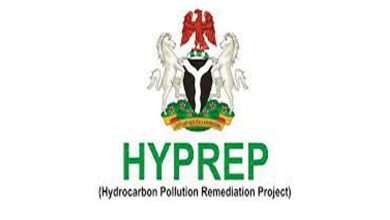‘Why Ogoni clean-up, others are delayed’
Disunity within the oil-polluted communities, hegemony tendency of community’ leaders who lord themselves over their subjects at will, and the use of wrong chemicals by contractors, hired to clean up the oil polluted areas have been identified as factors delaying the remediation/cleanup process introduced by Shell and other International Oil Companies (IOCs) to restore the natural habitats in Ogoniland and other communities in the Niger-Delta region.
Other factors affecting the cleaning of the oil ravaged communities, according to Human Rights/ Environmental Institutions, that spoke to The Nation, are delay in the implementation of the United Nations Environmental Programmes (UNEP)’s report by the Federal Government, and the attitude of the polluted communities.
The organisations said both internal and external factors affect the cleaning of the oil polluted communities. The Business Development Manager, Cerase Environmental Services, Gloria Igboji, said greed, excessive powers, which some chiefs in the region have arrogated to themselves, and the use of low quality chemicals to treat the farmlands and the waters, combined together, delay the cleaning of the areas.
She said her firm carried out a study, which reveals that negligence on the part of contractors, hired by the multinational oil companies, to clean up the Ogoniland, is a problem in the region. She noted that the firm conducted an Environmental Impact Assessment (EIA) programme during which it collected samples of the land that was believed to have been restored.
She said: “The result of the study reveals the opposite because, the farmlands and waters in the real sense of it, were not cleaned. It was discovered with chemicals used in treating the land which were of lower quality. Besides, issues such as greed, pervasive settlement culture caused by bribing of chiefs that protest delay in cleaning up the areas by oil firms, and excessive use of powers by some people in the region, have stalled efforts made to restore natural habitats such as land and water in the region.’’
Igboji said it is high time Shell, the communities and the Federal Government worked together to clean-up Ogoniland, and return the people to their traditional occupation of farming and fishing.
She said failure to clean up the Ogoniland in time, means inhabitants of the area would not be able to do farming and fishing, which are their major occupations.
Also, the Director in charge of Environment, Centre for Environment, Human Rights and Development(CHERD), Obodoekwe Styvn, said the people of Ogoniland are praying that the government should do correct clean up/ remediation so they can go back to their traditional occupation of fishing and farming.
He said another factor that is delaying cleaning of the oil-polluted communities was the failure of the Federal Government to speed up the process of implementing the UNEP’s report, which stated that it would take about 30 years to clean the affected areas.
President Muhammed Buhari had in 2015, set up governance structure that would help in implementing the UNEP’s report on the cleaning of oil polluted communities.
Shell said the Federal Government’s aspirations to clean up Ogoniland would restore normalcy in the area. Shell’s Spokesman, Precious Okolobo said the firm is not only committed to deliver the UNEP recommendations directed to it as operator of the SPDC Joint Venture, but would continue to work with the Federal Government and its joint venture partners in order to take the implementation of the UNEP report forward, and contribute to the growth of the communities where it operates.
Credit – The Nation




